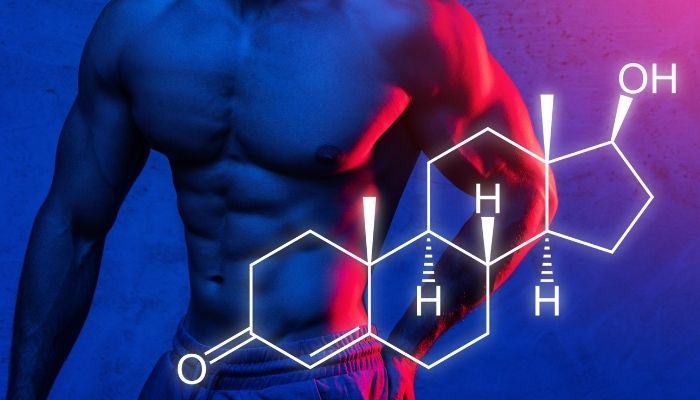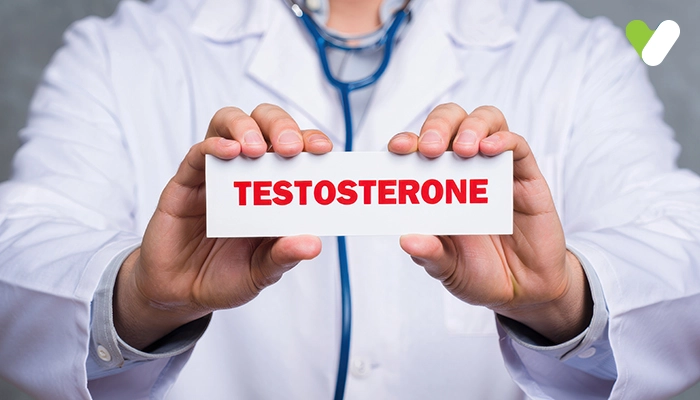Rajeev (name changed) was a young man of 30, who was finding himself increasingly fatigued and depressed for a sustained duration. He was also facing lower sex drive and erectile dysfunction which impacted his marital relations. He ultimately went to a doctor who called it signs of low testosterone. There were several low testosterone symptoms that Rajeev was witnessing. He is now getting treatment to fix the issue.
Knowing More About Low Testosterone
Before learning about the signs of low testosterone you should know more about the condition itself. . Testosterone is the sex hormone in males which is created in their testicles. The hormone levels are crucial for normal sexual development and drive in men. This is the hormone that helps boys develop features such as facial hair, body hair, muscle strength, and a deeper voice tone at the time of puberty.
Men require it for sperm creation as well. Levels come down gradually with the onset of age. Lower levels are known as TD (testosterone deficiency) syndrome or Low-T. This means that the body does not have ample amounts of this vital substance.
Is Testosterone Therapy required?
Such therapy is required if someone has signs of low testosterone in men or low testosterone level symptoms. This type of therapy is needed for the treatment of various conditions including the Klinefelter syndrome. Therapy is needed for those who have lost their testicles or in case of any damage to the same. If the testicles are removed owing to any other illness, then therapy may be required. Most men with lower levels will need therapy for combating the possibility of suffering from various other related conditions.Signs of Low Testosterone
There are various low testosterone symptoms including the following:1. Body hair loss.
2. Lower sex drive.
3. Reduction in erectile functions.
4. Lean muscle mass loss.
5. Lower beard growth.
6. Tiredness and fatigue.
7. Depression symptoms.
8. Obesity.
These are highly specific low testosterone level symptoms while some non-specific symptoms may include reduced strength, endurance, and lower energy levels along with issues with focus, speech, lower productivity, and memory issues. Lack of sexual desire may not always be associated with testosterone deficiencies. However, a combination of symptoms may be linked to the same.
Causes of Deficiencies
Some people have conditions like Noonan, Klinefelter, and ambiguous genitalia syndromes which lead to deficiencies. Some other reasons may include testicle damage, radiation/chemotherapy, testicle removal on account of cancer, infections, pituitary gland diseases, autoimmune diseases, and so on. Other reasons include obesity, aging, metabolic syndrome, medication usage, and specific health issues like AIDS and HIV.Diagnosis Procedures
The doctor will take a blood test along with taking the entire medical and health records of the patient. You may be asked about any history of surgeries, testicle injuries, puberty and development, headaches and other symptoms, and so on. The physical test will check for obesity, metabolic syndrome, enlarged breasts or gynecomastia, hair location/amount/patterns, testicles, and their sizes, and prostate abnormalities and size.Some of the blood tests that may be required include the following:
- Total testosterone level.
- Luteinizing hormone.
- Blood prolactin level.
- Blood hemoglobin or Hgb.
- FSH (follicle-stimulating hormone).
- Estradiol hormone test.
- Bone density test.
- Karyotype or chromosome test.
- HbA1C blood test to check for diabetes.
- MRI for the pituitary gland.
Treatment
Testosterone therapy may be recommended for individuals with this condition although they have to meet various laboratory and clinical definitions for the condition. Those with levels lower than 300 ng/dL usually require this test. Testosterone is usually given through the skin, mouth, nose, pellets under the skin, or injections.Possible Side Effects
Some of the side effects include the following:- Redness of the skin and patches along with itching.
- Skin rashes and reactions at the site of the injection.
- Allergic reactions, pain, bruises, swelling, and hematoma in rare cases.
- Interruptions in the production of normal sperm levels.
- Risks of coming into contact with testosterone are given topically.
- Erythrocytosis or abnormal increases in hematocrit and blood hemoglobin.
Yet, there is no definite evidence that connects this therapy to either clotting of the veins or prostate cancer and also any increase/decrease in cardiovascular risks. Post-treatment, the body will respond to this treatment in its own unique manner. The therapy will help greatly with lower sexual drive, erectile dysfunction, lower muscle mass, and anemia along with depression and bone marrow density issues.
